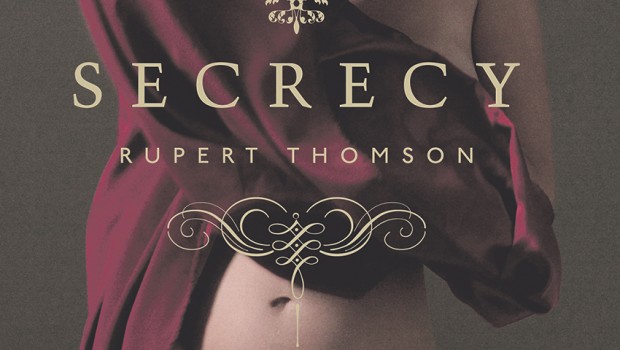Secrecy by Rupert Thomson
It is Florence, 1691. The Renaissance is long gone, and the city is a dark, repressive place, where everything is forbidden and anything is possible. The Enlightenment may be just around the corner, but knowledge is still the property of the few, and they guard it fiercely. Art, sex and power – these, as always, are the obsessions. Facing serious criminal charges, Gaetano Zummo is forced to flee his native Siracusa at the age of twenty, first to Palermo, then Naples, but always has the feeling that he is being pursued by his past, and that he will never be free of it. Zummo works an artist in wax. He is fascinated by the plague, and makes small wooden cabinets in which he places graphic, tortured models of the dead and dying. But Cosimo III, Tuscany’s penultimate Medici ruler, gives Zummo his most challenging commission yet, and as he tackles it his path entwines with that of the apothecary’s daughter Faustina, whose secret is even more explosive than his. (Granta)
This Party’s Got to Stop by Rupert Thomson
Christobel Kent, The Guardian
“As he unfolds his narrative, moving from Florence to Sicily and back again, dipping into the intrigues of the court and tracing the city’s geography, building character and layering historical and psychological detail with deliciously measured slowness, Thomson transcends genre pretty effortlessly. He doesn’t scrimp on the many satisfactions of a historical novel and he provides an unstintingly gripping thriller plot into the bargain.”
Stephanie Merritt, The Observer
“Thomson’s writing is pitch-perfect here. His prose is as clear and limpid as water, his ear finely attuned to the timbre of the period though mercifully free from archaisms, his characters drawn with subtlety and wit. The details are pin-sharp, but sparing enough not to weigh down the story. Instead, there is a mesmerising quality to the unfolding of the narratives and a sense of ellipsis that keeps it hovering on the threshold of reality and calls to mind the dreamlike flavour of Alessandro Baricco’s Silk. Secrecy is beautifully plotted, too …”
Allan Massie, Scotland on Sunday
“The narrator’s voice in Rupert Thomson’s new novel is always convincing, always authentically his own, but behind this sentence is Graham Greene, its tone and rhythm unmistakable. The practice of novel-writing is like a relay race, the baton passed on from one generation to another. In setting and story, Thomson’s novel is very different from anything Greene ever wrote; yet in reading it I time and again caught echoes of Greene.”
Boyd Tonkin, The Independent
“Like a Borges script for a Hitchcock film, enigmatic but suspenseful, the Thomson novel moves via electric jolts of menace, malice or morbidity that lend a flesh-tingling charge to every twist. From the mind-bending dystopia of Divided Kingdom to the delirious Amsterdam ordeals of The Book of Revelation and the disorienting fable of blindness and insight in The Insult, Thomson’s immaculately chilled tableaux of crime and dream create a unique microclimate of existential noir.”
Jonathan Barnes, The Literary Review
“Occasionally, one wonders if the skill and attention that have been expended upon the level of the sentence might not have overwhelmed the more quotidian business of plotting. Dramatic moments of betrayal, artistry and vicious politicking are passed over too swiftly.”
Stephanie Cross, The Daily Mail
“Rupert Thomson’s bewitching narrative, which shifts fluidly in time and between perspectives, is suffused with the stuff of dreams and nightmares. It’s also intensely atmospheric, and Thomson is as superb on changes of light and weather as he is on Florence’s architectural gems.”
Adam Mars-Jones, The London Review of Books
“The story is set in the era of baroque but the novel isn’t itself baroque (as Hawksmoor could claim to be). In terms of its aesthetics, mannerism would be a better fit. The rich interplay of textures fights the three-dimensional modelling of its figures and the intensely inventive imagery isn’t there to serve the story: it’s the story that provides a liquid surface on which Rupert Thomson can float the exquisite toy boats of his language.”
AN Wilson, The Financial Times
“The plot is extraordinarily convoluted and there were times when I had to reread the previous 20 pages: we are being asked to carry in our heads all the memories of Zummo’s unhappy past in Siracusa; the identity of a lot of very mysterious characters … and the names and details of a number of sexually alluring women whose bodies are delineated more fully than their characters. But however lost you feel, it is worth pressing on until the moment about halfway through when that unknown girl’s body is hoisted out of the Arno. Now the mystery story really begins to unfold.”
Stephen Abell, Times Literary Supplement
“A salient feature of Pygmalion’s creation was the concealment of its own artfulness (“ars adeo latet arte sua”); Zummo instead is consistently preoccupied with a sense of his own artistry, and its relationship with the surrounding world. This allows Thomson to fill the narration with the beautifully mannered, patterned description that adorns so much of Secrecy.”
Robert Collins, The Sunday Times
“Simmering plot points lead Thomson into some arguably overwrought, even over-sentimental resolutions. Where the novel grips is not in plot revelations, but — appropriately, given the secrecy theme — in the sinister, unspoken atmosphere of Cosimo’s palace and of Zummo’s superbly strange waxwork.”
OMNISCORE:












